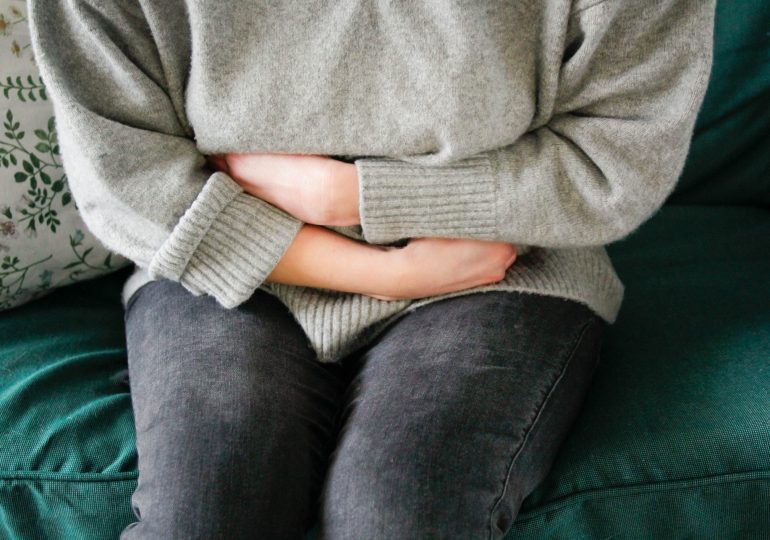If you’ve ever experienced irregular bowel movements during your period, you’re not alone.
Your menstrual cycle can lead to symptoms like bloating, cramping, and changes in your bowel movements. Many people experience diarrhea while on their period (commonly known as “period poops”). We spoke to doctors about what causes the phenomenon and how best to manage stomach-related issues associated with your menstrual cycle.
[time-brightcove not-tgx=”true”]
What causes “period poops”?
In the week or two leading up to your period, it’s not uncommon to experience constipation and bloating. That’s because your body is releasing more progesterone (in preparation for a possible pregnancy), which can relax your gut muscles so your gastrointestinal system “doesn’t move things along as quickly,” says Dr. Wendi LeBrett, a gastroenterologist in Idaho. But when you start your period, your progesterone levels drop. “I describe this as taking the brakes off,” LeBrett says. “Then, all of a sudden, whatever’s been slowing down your gut is gone, and so then there’s an increase in gut motility.”
At the same time, your body produces more hormone-like substances called prostaglandins while you’re on your period, according to LeBrett. Prostaglandins cause uterine contractions during menstruation, which helps shed your uterine lining and can cause cramps. But prostaglandins can also cause the contraction and relaxation of your gut muscles, LeBrett says. That can cause more frequent bowel movements and loose stool or diarrhea, says Dr. Karen Tang, a gynecologist and the author of It’s Not Hysteria, a book about reproductive health.
How can you ease stomach problems associated with your period?
If you’re constipated before your period starts, LeBrett recommends eating insoluble fibers, like the kind found in leafy green vegetables. If you start having diarrhea during your period, she suggests eating soluble fibers, like the kind found in bananas and oatmeal. Some fruits and vegetables contain both types of fibers.
Ibuprofen is a prostaglandin inhibitor, so it can help ease the discomfort of both period cramping and irregular bowel movements, LeBrett says. But LeBrett advises people not to take it too frequently or on an empty stomach, since ibuprofen can increase the risk of stomach ulcers.
So are “period poops” normal?
Yes. But both LeBrett and Tang say that if your symptoms are severe, you should see a doctor. “I usually say, if something’s affecting your quality of life, that’s not normal,” Tang says.
If you’re experiencing severe diarrhea, if it hurts to have bowel movements, or if there’s blood in your stool, Tang recommends consulting your doctor. More serious symptoms could be a sign of another condition, like endometriosis or a gastrointestinal issue.
“If you’re noticing [period poops] cyclically, like it always happens around your period, that kind of fits with the overall changes in your menstrual cycle,” LeBrett says. “If you’re noticing it more chronically, like you’re always having diarrhea, and it’s maybe a little worse during your period, but you’re still having diarrhea on the other days of your menstrual cycle, that’s another time to discuss with a doctor.”
Leave a comment








